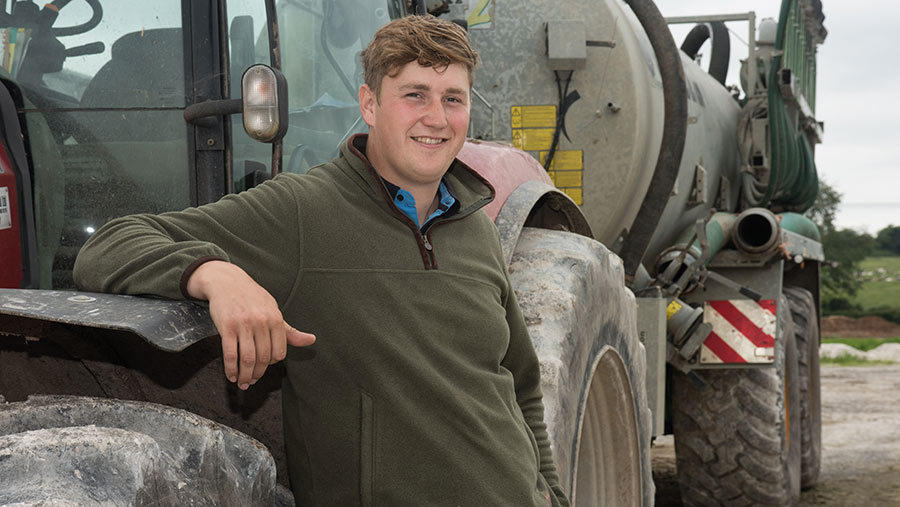Farmer Focus: Making a mess with muck
 Charlie Cheyney © Hugh Nutt
Charlie Cheyney © Hugh Nutt As I write this we are in the middle of maize drilling after being rained off over the coronation weekend.
Normally, our biggest challenge with maize is retaining moisture, but this year it is the opposite.
It really goes to show that no year is the same and that planning for every eventuality is the only option.
See also: How strip-till drill offers flexibility in low-cost system
I’m very pleased with the maize we have managed to plant so far. After a bit of head scratching the new-to-us-drill seems to be doing a good job and the strip-till cultivator is achieving a nice deep seed-bed.
The difficulty will be in trying to get heavier ground dry enough for the machine to work, especially where there are wheelings from muck spreading.
Unfortunately, this year we caused soil damage spreading the muck, which has made things difficult when preparing the ground. It is a hard line to tread at times when using manure.
Obviously, the benefits in terms of organic matter and nutrients are important and are good for the soil.
However, with tight spreading windows and little flexibility due to the high machinery inputs, soil damage can often occur.
Organic matter is needed to improve soil resilience, but on lower organic matter soil, spreading the material can cause damage.
I feel this will only become more difficult as farmers are being pushed to spread in the spring rather than the autumn when soils tend to be wetter.
To help manage this there are a few things we do to restrict damage – the use of GPS to limit wheelings and using overwinter cover crops to help the ground carry weight better and deal with moisture.
But this year has shown more is needed. One option is to spread lower volumes of higher-quality products, this may mean an extra processing step to our organic manures.
Furthermore, it would mean manures could be spread at wider distances, so reducing wheelings.
One potential option is to compost the manure. This would increase the products uniformity and improve its soil-conditioning ability.
However, I am conscious of the extra labour and machinery required, as well as the effects on the manure’s nutrient availability.

